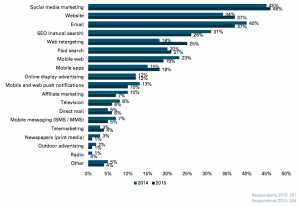They told you to never say “I” at a meeting. Use “We.” Always We.
Ignore them. They are wrong.
They told you that when you say I, I, I it sounds like it’s all about you. Said you would sound like a grandstanding, self-promoting, self-aggrandizing narcissist.
A bit of projection, perhaps?
They are wrong. Very wrong.
Let’s break down the traits of narcissism, for a moment. Current research conducted at New York University by Pascal Wallisch, Clinical Associate Professor in both NYU’s Department of Psychology and Center for Data Science (“Journal of Personality and Individual Differences,” March 2021), offers a compelling perspective.
Our work reveals that these narcissists are not grandiose, writes Wallisch, but rather insecure, and this is how they seem to cope with their insecurities. The results suggest that narcissism is better understood as a compensatory adaptation to overcome and cover-up low self-worth.
Wallisch’s team surveyed nearly 300 participants – approximately 60 percent female and 40 percent male – who had a median age of 20. It examined Narcissistic Personality Disorder (NPD), conceptualized as excessive self-love and consisting of two subtypes, known as grandiose and vulnerable narcissism.
Specifically, narcissistic behavior was shown to be made up of 4 components:
- Impression Management (“I am likely to show off if I get the chance”)
- The Need for Social Validation (“It matters that I am seen at important events”)
- Self-Elevation (“I have exquisite taste”)
- Social Dominance (“I like knowing more than other people”).
I loathe narcissism but I approve of vanity.“
Diana Vreelands
When I consider these 4 components, I instantly think of folks in my professional world who seem to be animated by these drivers. The annoying self-promoters. And I can recognize these drivers in myself, as well.
The bulk of narcissists in the NYU study proved to be insecure, or best described by the vulnerable narcissism subtype. Their narcissism was a compensatory mechanism to mask their insecurity. A significantly smaller subset was animated by grandiose narcissism, or a manifestation of what psychologists call psychopathy.
Don’t compensate publicly for your insecurities. Be mindful of any tendencies toward grandiosity. But, please, in business conversations, have the courage to say “I.”
It does not make you a narcissist. Doesn’t imply you don’t value your team.
It DOES mean that in critical situations, you fully own your feelings, your messages, your proposals, your ideas.
You stand behind what you say. I fully own this. I do.
Let’s break this down some more, shall we.
Don’t Be …
- Fake-Neutral
Going to neutral is a great spiritual practice. Detaching from the drama of what’s going on around us. Understanding that it’s all a game of illusion and projection. Knowing that neutral is our original, primordial state.
Fine. Chances are you aren’t SO enlightened that you don’t have a thought, perspective on what is being discussed. Pretending you don’t is what I term fake-neutral. Pretending to be more detached than you are is fake-neutral. Worse yet, you likely have not been hired to be fake-neutral. You have been hired because you have a brain and a perspective on things. Smart business folk know not to always share everything they think. But when they do, they go to “I:”
Here’s what I think. Here’s what I see. Here’s what stands out for me.
- A Data Robot
When we present data to a group of colleagues at a business meeting, it is tempting to harbor the illusion that it’s about the data we present, not about us. WRONG. It is never about the data. It’s about how we make sense of the data we provide. Our interpretation. Our meaning-making. Our “take” on the data. So please don’t ever, ever be a data dumper. Be a data meaning-maker. That requires you to go to “I.”
Here’s what I think is most important. Here’s what jumps out to me. This is how I suggest we interpret this information.
DO …
- Bring Your Whole Self
Your “Whole Self” has thoughts and feelings about pretty much everything. Your diminished Self hides much of what s/he is thinking or feeling. Clear, right? Which Self adds more value to the proceedings in your business doings?
Bringing your Whole Self does NOT mean over-sharing. Does NOT suggest that we do not have healthy professional boundaries. It DOES suggest that we are conscious of our thoughts and feelings, and that we will, when we sense that speaking up will be beneficial to a proceeding, do so authentically. It means stepping into “I.”
I am worried about …. I don’t believe we can …. I am enthusiastic about …
- Own What You Stand For
You have a point-of-view on things. You have values that matter to you. You have strategies that animate you. Tactics that you believe suck. Again, no need to share everything. But please, speak up. Share nothing, and you become the quintessential drone who sounds like an empty vessel – the sort of person you yourself have made fun of and said you’d never become. Own your point-of-view to help the entire team get to a better outcome. And yes, that means going to “I.”
I feel strongly that … I am confident we can … I don’t think this approach is the best …

There ARE cultural differences about how we state an opinion, a perspective or a point-of-view that matters to us. Differences about how “cool” it is to go to the “I.”
I am German, and German is my first language. I have a distinct memory of older folks in my culture shying away from using the word “I” when stating something personal and switching to neutral wording. For example, instead of saying I don’t like to get upset, a German of a certain generation might say” Man regt sich nicht gerne auf.” One doesn’t like to get upset.
Going to the impersonal. Hiding the “I.”
The more Senior your role in the business world, especially when you work in a global US-centric enterprise, the less you can hide the “I.” When you do, it marks you as a Junior leader. By all means, acknowledge you team. Throw in a lot of heartfelt “we” language. But please, please own your “I.”
Leave the narcissism at the door.
Use your judgment. And own your “I.”
Business & Finance Articles on Business 2 Community
(22)








